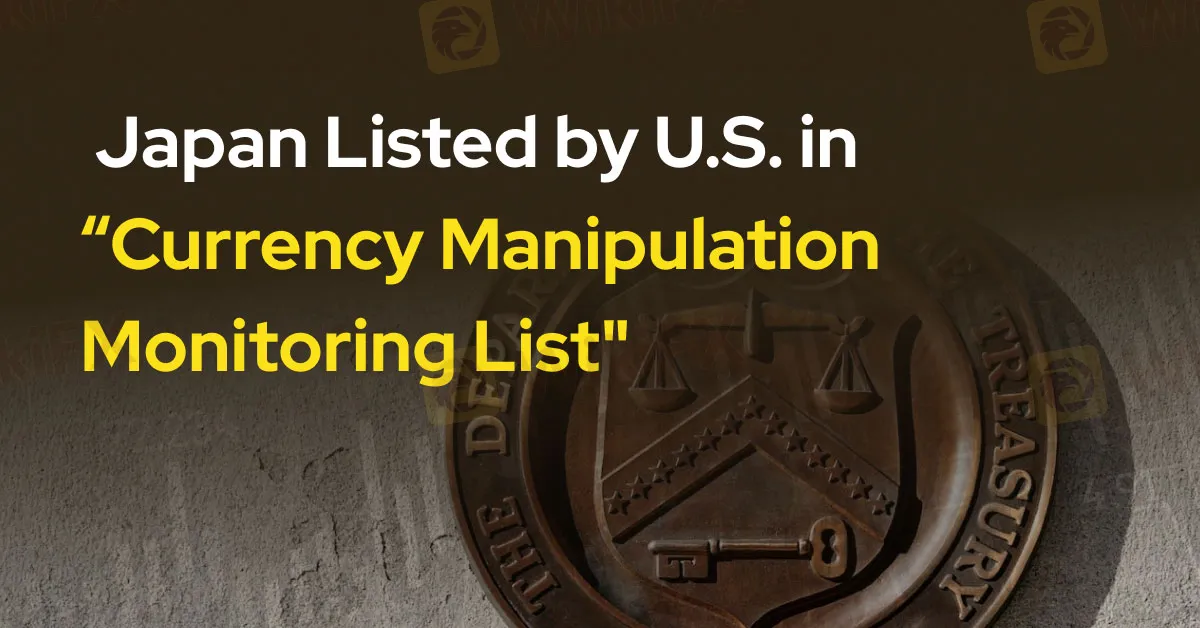Abstract:The U.S. Treasury Department said Thursday it has once again put Japan on a list of major trading partners that it monitors for potentially unfair foreign exchange practices. According to a June 21 report from Japan's Asahi Shimbun website, the U.S. Department of the Treasury announced on the 20th that Japan has once again been included in its "currency manipulation monitoring list."

The U.S. Treasury Department said Thursday it has once again put Japan on a list of major trading partners that it monitors for potentially unfair foreign exchange practices. According to a June 21 report from Japan's Asahi Shimbun website, the U.S. Department of the Treasury announced on the 20th that Japan has once again been included in its “currency manipulation monitoring list.” Analysts suggest that while the U.S. did not label Japan as a currency manipulator, placing it on the monitoring list serves as a warning. The United States, being the world's largest current account deficit country, closely scrutinizes countries and regions that accumulate significant trade surpluses with the U.S., suspecting deliberate currency depreciation to boost exports.
The U.S. Congress submits a report every six months on major trading partners' currency policies, and Japan has re-entered the monitoring list after a year. In 2023, Japan's trade surplus with the U.S. surged, with its current account surplus exceeding 3% of GDP, meeting the criteria set by the U.S. Treasury for inclusion in the monitoring list. Other countries and regions on the list include Germany, Malaysia, Singapore, Vietnam, mainland China, and Taiwan.
Japanese Finance Minister Taro Aso, speaking at a press conference after a Cabinet meeting on the 21st, commented on Japan being monitored again, stating, “This conclusion is based on mechanical evaluations by the U.S. regarding indicators such as the current account surplus and trade surplus with the U.S., and does not imply that the U.S. believes Japan's currency policy is problematic.”
Simultaneously, regarding Japan's interventions earlier this year to prevent a historic depreciation of the yen, the U.S. Treasury noted in its report, “Japan regularly discloses the results of its interventions, ensuring transparency.” Treasury officials interviewed on the 20th also expressed their view that Japan's currency policy is not problematic, describing Japan's interventions as counteracting competitive devaluation.










